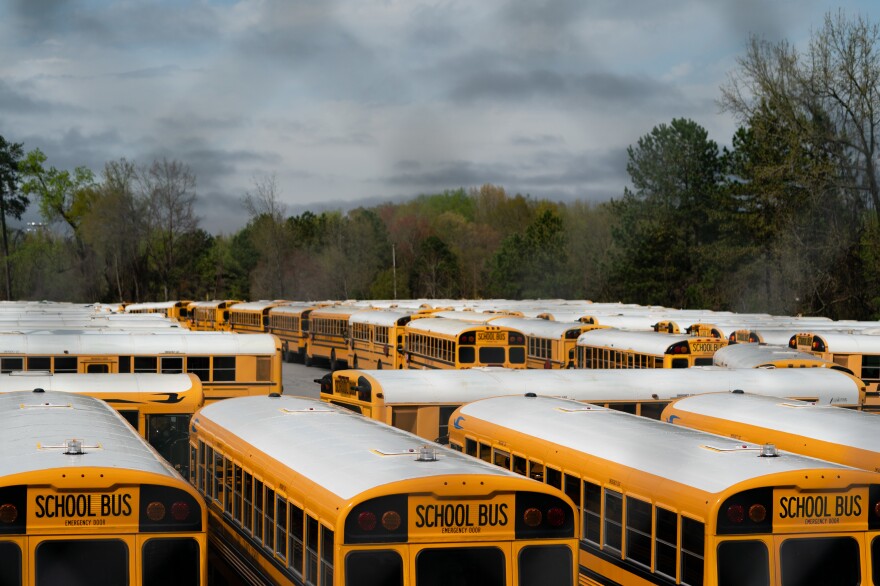Gwinnett County Public Schools in Georgia is one of a growing number of K-12 school districts around the country deeming it too dangerous to teach students in person when classes restart this fall.
The school district — the state's largest — announced earlier this week that it would transition to all-virtual learning, reversing its previous plan to hold a mix of in-person and virtual classes.
Superintendent J. Alvin Wilbanks said the change came down to prioritizing safety – and that will guide any decision to revert to in-person learning.
"I think we all understand that face-to-face instructions is always a preferred model, but that needs to be done at this time with a pretty good assurance that students and staff will be safe. And we did not feel like that was the case," he told NPR in an interview Wednesday.
President Trump and Education Secretary Betsy DeVos have repeatedly urged schools to reopen in the fall, even as cases rise in many parts of the United States.
Ahead of Wilbanks' reversal on Monday, Georgia Gov. Brian Kemp said he wants kids back in schools in person because they're safer there, "from a nutrition standpoint, child abuse, human trafficking."
Wilbanks said he's taking steps to try and minimize negative effects on the neediest children, including expanding Internet service via hotspots, purchasing additional Internet-connected devices for students and working with special education instructors.
Still, the superintendent said, "I can't guarantee that" every student will have a reliable Internet connection. But he added, "If they have accepted one of the plans that we have, most everybody will have access."
According to some teachers within the school district, some 3,000 students are unequipped to learn from home.
As part of Gwinnett County's virtual learning plan, teachers are still expected to report to their schools to give the digital lessons. For the teachers who are also parents, Wilbanks said the district assumes that parents will handle their own child care. In cases where educators find that difficult, he said, teachers will be allowed to bring their school-age kids to their classrooms while they teach.
Related reading:
When Can Kids Go Back To School? Leaders Say 'As Soon As It's Safe'
Closed Schools Are Creating More Trauma For Students
A Teacher Who Contracted COVID-19 Cautions Against In-Person Schooling
Copyright 2021 NPR. To see more, visit https://www.npr.org.




